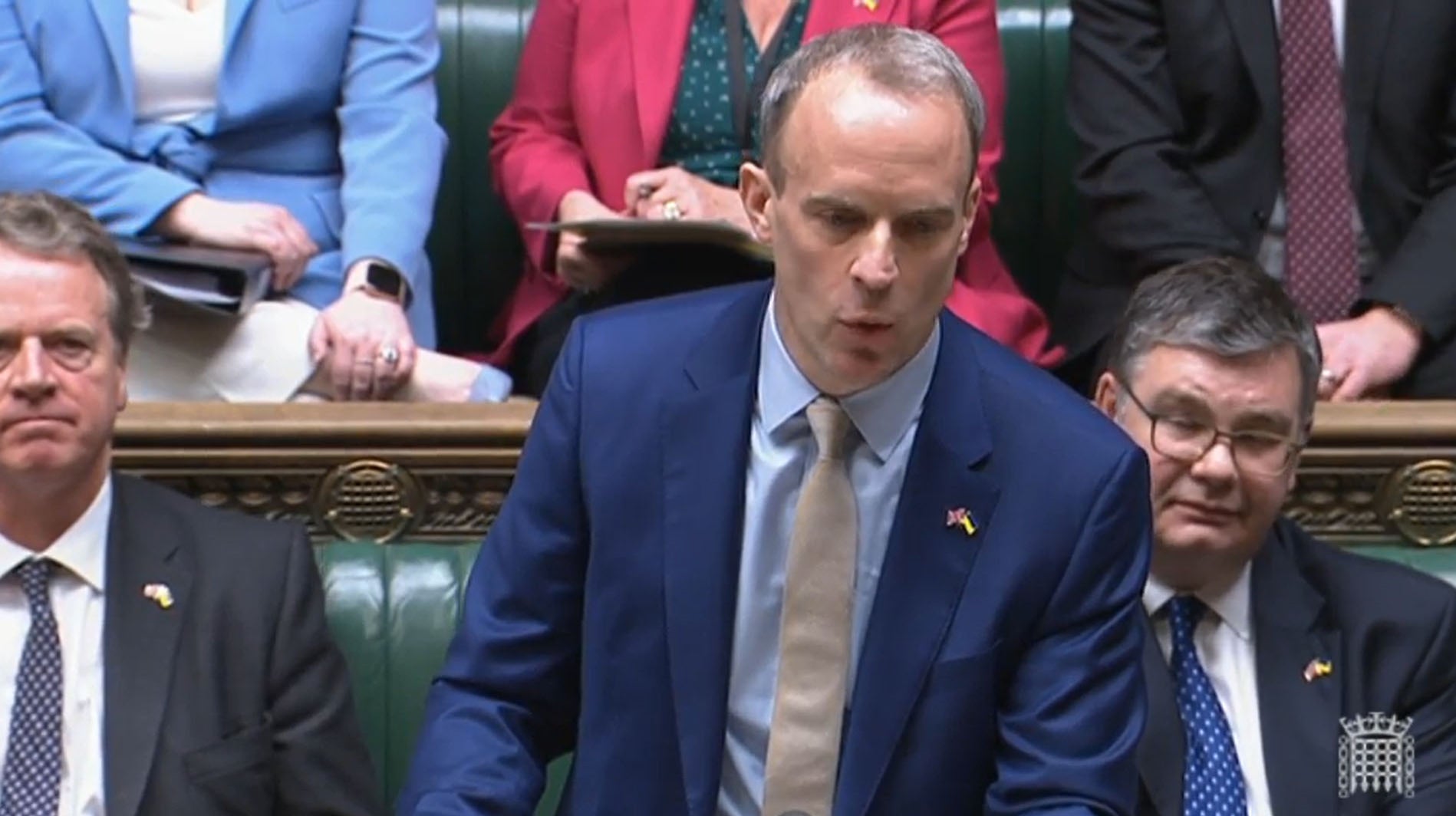Case for reforming parole system ‘clear and made out’ – Raab
The proposed reforms could see ministers override the Parole Board when it comes to the release of dangerous criminals from jail.

Your support helps us to tell the story
From reproductive rights to climate change to Big Tech, The Independent is on the ground when the story is developing. Whether it's investigating the financials of Elon Musk's pro-Trump PAC or producing our latest documentary, 'The A Word', which shines a light on the American women fighting for reproductive rights, we know how important it is to parse out the facts from the messaging.
At such a critical moment in US history, we need reporters on the ground. Your donation allows us to keep sending journalists to speak to both sides of the story.
The Independent is trusted by Americans across the entire political spectrum. And unlike many other quality news outlets, we choose not to lock Americans out of our reporting and analysis with paywalls. We believe quality journalism should be available to everyone, paid for by those who can afford it.
Your support makes all the difference.The Justice Secretary has vowed to “enforce public safety” as he set out plans to overhaul the parole system.
Dominic Raab said the case for reform of the process is “clear and made out” as he proposed to take back powers so ministers could block dangerous criminals being freed from jail.
The shake-up comes after public outcry at the decision to release double child killer Colin Pitchfork from jail and the London taxi driver rapist John Worboys.
The release of Worboys was later formally overturned after the case was examined by a new panel, while Pitchfork was recalled to prison for a breach of licence conditions in November.
Protecting the public is the Government’s top priority
Mr Raab also said on Wednesday that he plans to appeal against the Parole Board decision which recommends the mother of Baby P, who died after months of abuse, should be freed from jail.
Setting out his review of the parole system, Mr Raab told MPs: “Our reforms will ensure that those offenders who present the highest risk to public safety are reviewed more rigorously with additional ministerial oversight.
“Protecting the public is the Government’s top priority. The proposals in this review will enforce public safety.”
He added: “Following the review we have conducted and published today, I believe the case for reform is clear and made out.”
Mr Raab said he believed the “focus in this critical decision-making has become adrift from its original moorings”, adding: “So this Government will anchor Parole Board decision-making back to the cardinal principle of public protection.
“When it comes to assessing the risk to victims and public safety, we will introduce a precautionary principle to reinforce public confidence in the system and in cases which involve those who have committed the most serious crimes, we will introduce a ministerial check on release decisions exercised by the secretary of state for justice.
“The package of reforms published today will strengthen the focus on public protection at every stage.”
Offenders who are subject to life sentences, indeterminate sentences for public protection, extended sentences and certain recall cases are all subject to the parole process, meaning their release must be directed by the Parole Board.
The proposed reforms could see ministers override the Parole Board when it comes to the release of dangerous criminals from jail, with an aim to focus on protecting the public rather than the rights of offenders.
This could include cases involving murder, rape, terrorism and causing or allowing the death of a child.
Victims are also expected to be given the right to attend parole hearings in full for the first time, in a nod to the Conservative Party’s 2019 manifesto.
The Parole Board will now be required to take into account submissions made by victims and they will be allowed to ask questions.
The new rules could also see more police, and other people with “enforcement experience”, recruited to sit on Parole Board decision panels.
Mr Raab said it was “striking” that as of last year only 5% of all Parole Board panel members come from a law enforcement background, telling MPs he believed this was a “significant deficit”.
Shadow justice secretary Steve Reed said: “It’s crucial that public protection is paramount and that victims are right at the heart of the criminal justice system.
“Currently too many victims feel their views are not taken sufficiently into account either in parole decisions or in sentencing and this leads directly to public safety concerns that must be taken more seriously.”